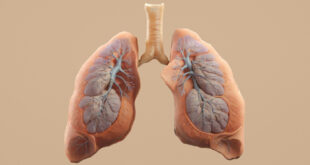Ayurveda, the ancient Indian system of holistic healing, has always placed great emphasis on balance—especially hormonal balance, which is crucial for women’s health. From menarche to menopause and beyond, a woman’s body undergoes numerous changes governed by hormonal fluctuations. When these hormones fall out of balance, it can result in a range of issues including irregular periods, mood swings, weight gain, fertility challenges, and more.
Ayurveda for Women’s Health offers a time-tested, natural approach to support hormonal balance and overall wellness without the side effects often associated with synthetic treatments. Through diet, herbs, lifestyle practices, yoga, and mindfulness, Ayurveda provides comprehensive care tailored to a woman’s unique body constitution or prakriti.
In this blog, we’ll explore:
- The Ayurvedic view of female hormones
- Key hormonal imbalances in women
- Ayurvedic herbs and remedies for hormonal balance
- Lifestyle and dietary recommendations
- Yoga and meditation for hormonal health
- Special Ayurvedic practices for different life stages
Understanding Hormones from an Ayurvedic Perspective
In Ayurveda, the body is governed by three doshas: Vata, Pitta, and Kapha. These doshas are bio-energies that regulate all physiological and psychological processes. When in balance, they promote health; when out of sync, they cause disease.
Hormonal health is primarily associated with Shukra Dhatu (reproductive tissue) and Rasa Dhatu (plasma/lymph). These tissues are nourished by proper digestion (Agni) and balanced doshas.
Each dosha affects the reproductive system differently:
- Vata imbalance: Causes irregular menstruation, painful periods, and infertility.
- Pitta imbalance: Leads to heavy bleeding, inflammation, and emotional volatility.
- Kapha imbalance: Results in delayed cycles, PCOS, weight gain, and sluggish metabolism.
Ayurveda for Women’s Health aims to bring these energies back into balance through personalized therapies.
Common Hormonal Imbalances in Women
Modern lifestyle, stress, poor nutrition, and environmental toxins have increased the incidence of hormonal disorders. Here are some conditions Ayurveda effectively addresses:
1. Polycystic Ovary Syndrome (PCOS)
Characterized by irregular periods, weight gain, acne, and ovarian cysts. Kapha accumulation and weak digestion are typically to blame.
2. Premenstrual Syndrome (PMS)
Mood swings, bloating, cramps, and irritability before menstruation are often caused by excess Pitta and Vata.
3. Hypothyroidism
Low thyroid function leads to fatigue, weight gain, and depression. Ayurveda associates this with Kapha dosha and weak metabolism (mandagni).
4. Menopause
The transition to menopause involves hormonal shifts leading to hot flashes, mood changes, and insomnia—typically a Vata-predominant imbalance.
Ayurvedic Herbs for Hormonal Balance
Nature provides powerful herbs that support Ayurveda for Women’s Health. These herbs work to restore hormonal equilibrium by nourishing the reproductive system and calming the doshas.
1. Shatavari (Asparagus racemosus)
Known as the “Queen of Herbs” for women, Shatavari supports reproductive health, balances estrogen, and eases PMS and menopausal symptoms.
2. Ashwagandha (Withania somnifera)
An adaptogen that helps regulate cortisol, reduce stress, and support thyroid function—important for hormonal harmony.
3. Guduchi (Tinospora cordifolia)
Boosts immunity, detoxifies the liver, and reduces inflammation—supporting the endocrine system.
4. Lodhra (Symplocos racemosa)
Used traditionally to treat menstrual irregularities and excessive bleeding.
5. Triphala
A blend of three fruits, Triphala aids digestion and detoxification, which indirectly benefits hormone regulation.
Note: Always consult an Ayurvedic practitioner for the correct dosage and formulation for your body type.
Dietary Guidelines for Hormonal Health
In Ayurveda, food is medicine. What you eat directly impacts your doshas and hence your hormonal balance. Here are dietary tips aligned with Ayurveda for Women’s Health:
Foods to Favor:
- Whole grains like quinoa, barley, and brown rice
- Seasonal fruits and vegetables, preferably cooked
- Healthy fats like ghee, sesame oil, and coconut oil
- Plant-based proteins: lentils, mung beans, tofu
- Spices: turmeric, cumin, fennel, and coriander aid digestion and reduce inflammation
Foods to Avoid:
- Refined sugars and carbohydrates
- Processed and packaged foods
- Excessive caffeine and alcohol
- Cold, raw, or stale foods that aggravate Vata and Kapha
Tip: Drink warm water with lemon or ginger first thing in the morning to stimulate Agni (digestive fire).
Lifestyle Practices to Support Women’s Wellness
Ayurveda emphasizes the importance of Dinacharya (daily routine) and Ritucharya (seasonal routine) for maintaining balance. Here are simple but powerful lifestyle practices:
1. Abhyanga (Self-massage)
Daily oil massage using warm sesame or almond oil calms the nervous system, supports lymphatic drainage, and balances Vata.
2. Adequate Sleep
Sleep between 10 PM and 6 AM allows the hormonal system to reset and the liver to detoxify.
3. Stress Management
Chronic stress disturbs cortisol and sex hormones. Meditation, pranayama (breathwork), and journaling can reduce stress.
4. Regular Exercise
Moderate activity like walking, swimming, or yoga supports metabolism and detoxification, essential for hormonal balance.
Yoga and Meditation for Hormonal Balance
Yoga, when combined with Ayurveda, becomes a potent healing tool for women. Certain poses and breathing exercises directly stimulate the endocrine system and reproductive organs.
Effective Yoga Asanas:
- Supta Baddha Konasana (Reclining Bound Angle Pose) – Calms the mind and supports reproductive organs
- Bhujangasana (Cobra Pose) – Stimulates the thyroid and adrenal glands
- Setu Bandhasana (Bridge Pose) – Opens the pelvic region and balances hormones
- Balasana (Child’s Pose) – Relieves anxiety and balances Vata
Pranayama Practices:
- Nadi Shodhana (Alternate Nostril Breathing) – Balances energy channels and calms the mind
- Bhramari (Bee Breath) – Reduces anxiety and promotes hormonal harmony
Ayurvedic Care Across a Woman’s Life Stages
Each stage of a woman’s life comes with its own challenges and hormonal changes. Ayurveda provides specific guidance for all stages.
1. Menarche (Adolescence)
Focus: Establishing balance from the start
- Include nourishing foods, iron-rich herbs, and support for regular cycles
- Shatavari and Dashamoola help ease cramps and emotional swings
2. Reproductive Years
Focus: Fertility, pregnancy, and postpartum care
- Use Ashoka and Lodhra for menstrual issues
- Emphasize warm, nourishing foods and rejuvenating herbs like Shatavari
- Postpartum care involves sattvic foods, body massage, and rest
3. Perimenopause & Menopause
Focus: Managing transition and aging gracefully
- Use cooling herbs like Brahmi and Gotu Kola to manage hot flashes and anxiety
- Daily self-care rituals, grounding diet, and meditation are essential
Detoxification and Panchakarma
Panchakarma, the Ayurvedic detoxification therapy, is highly recommended for women experiencing chronic hormonal issues. It involves five therapeutic procedures designed to remove toxins (ama) and restore dosha balance.
- Vamana (emesis)
- Virechana (purgation)
- Basti (medicated enema)
- Nasya (nasal administration)
- Raktamokshana (bloodletting)
Panchakarma should always be done under the supervision of a trained Ayurvedic doctor.
Scientific Backing and Modern Research
While Ayurveda is ancient, modern science is now validating many of its practices. Studies have shown that:
- Shatavari improves estrogen regulation
- Ashwagandha reduces cortisol and supports thyroid health
- Yoga and meditation regulate the hypothalamus-pituitary-adrenal (HPA) axis
Integrative medicine increasingly incorporates Ayurveda for Women’s Health to complement conventional hormonal therapies.
Final Thoughts: Embracing Balance Naturally
Women’s bodies are wonderfully complex, governed by rhythmic cycles and subtle hormonal cues. While modern medicine offers short-term relief, Ayurveda provides a holistic roadmap to long-term wellness.
Ayurveda for Women’s Health is not just about treating disease—it’s about fostering balance, vitality, and inner harmony at every stage of life. Whether you’re navigating puberty, managing fertility, or easing into menopause, the Ayurvedic approach offers powerful tools to support your journey.
With the right combination of herbs, diet, lifestyle, and self-awareness, you can reclaim your health and enjoy a life of radiant well-being—naturally.
 Well Health Organic
Well Health Organic




